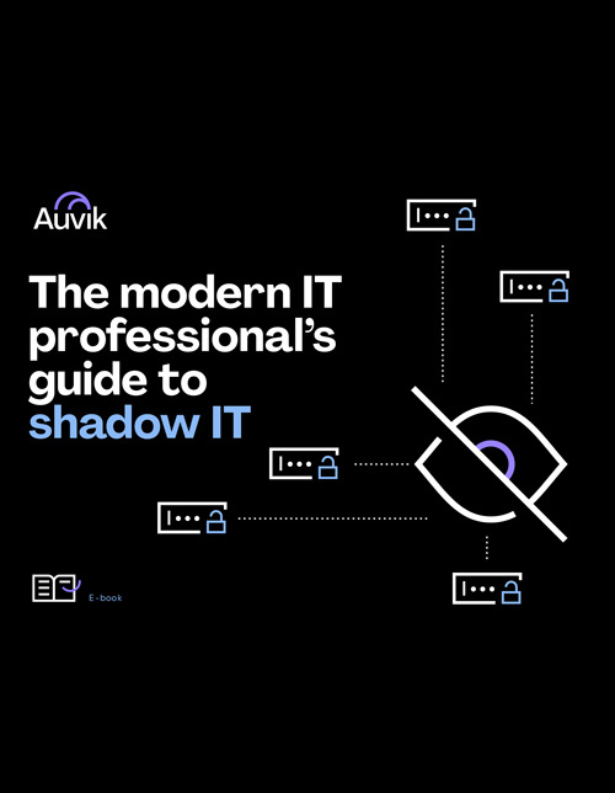There’s a point in every IT professionals’ career where they inevitably ask themselves,“do I want to stay technical, or get into management networking jobs?”
Sometimes this point occurs when they find themselves already are in management, either by design, or as I like to say, “by accident”. IT pros can find themselves thrust into a management position when the old IT manager leaves, or in a de facto leadership spot: the team suddenly grows and the new techs have to report into someone.
But does that mean that as an IT pro you have to get into management to advance? In my opinion, no. I’ve had people leadership roles, and I’ve had senior individual contributor roles, and to be honest, I love them both. But they’re entirely different skill sets, and knowing not only what you’re good at, but what you like to do can help you be successful in your career, and happy in your life.
So if you’re sitting there trying to decide what kind of networking job you want, “do I want to lead an IT team one day?”, or “do I want to be the most amazing network engineer out there?”, then this is for you!
Considerations
As I say to my kids, “accidents do happen”. But, it’s far better to avoid them if we can. Going into management, like a lot of major life decisions, shouldn’t be accidental if you can avoid it. It should be intentional, actively considered and thoroughly thought through.
There’s a lot of components to IT leadership— people management, vendor management, budgeting, planning, performance and cost reporting, etc. To ensure you’ll be most successful (and happy) in a management position, or at the very least know what you’re getting into, spend some time investigating these areas of responsibility before taking the leap. Better yet, if you have the opportunity in your current role, ask your leader to take on some of these responsibilities in a mentored capacity, where they can help you grow and learn.
Speaking from personal and anecdotal experience, the decision on what networking jobs to pursue is very much a personal one. While I don’t expect you to discover your true calling while reading this post, I’ve put together some considerations that you’ll hopefully find valuable when making your decision.
First, start by reflecting on what components of the jobs you’ve had you’ve enjoyed doing, versus the components of the job you’ve done simply because you had to. I don’t subscribe to the idea that you’ll love every minute of your job, but ideally you should be enjoying it most of the time. If you have a great day 9 out of every 10 days, that’s a win for me! Identify the things in your work that give you satisfaction and see that they are a part of whatever career path you go down.
Next, spend some time thinking about how you want your job to contribute to your overall life. For some people this may be financial resources to support their lifestyle (travel, grown-up toys like boats, ATVs, RV’s, or support for a large family). For others, there may be value they place on the impact their work makes on their own wellbeing, the wellbeing of others, or the impact it has on society. Some derive their purpose or self-worth through their career accomplishments. Wow, getting deep in here!
How you define success in your life or your career is ultimately up to you. Different paths will provide for different outcomes. What’s important is that you consider them before you jump in.
Some other standard “job interview” considerations include::
- Career progression opportunities. Are there advancement opportunities in only one path with your current employer?
- Seniority. Do you need to, or want to, be at the top of the “corporate ladder”? Does your organization enable technical leaders to have a seat at the table on big decisions, or only people leaders?
- Compensation. Does your employer have comparable high-level technical leadership roles that come with increased pay, or do you need to go into management to get that increase?
- Job Availability. While many companies are embracing a work-from-anywhere model, if you prefer (or need) to be in an office, the availability of jobs along your preferred path can be affected by the local job market.
- Mobility. If there’s low availability of job options in your ideal career where you are, are you able and willing to relocate?
While these are all important factors, the most important one for me was simply understanding the intersection of “what are things I like to do” and “what am I good at”.
If you want to move into management, what should you focus on?
First, get out of your cubicle. Whether it’s an actual stall in a cubicle farm (aka the corporate open-plan office), or a virtual cubicle in the new distributed work world many of us find ourselves in, you need to become visible and present to the rest of the business. While you may not be in a formal leadership role yet, providing indirect leadership with indirect power can be a very rewarding experience, and it is an in-demand skill for employers.

This means increased and improved communication. Work on your communication processes, as well as your personal communication skills, to help effectively talk with your colleagues, managers, and executives in a way that positions you as a subject-matter expert people can trust (creating comfort with the idea of you in a leadership position).
Next, network. No, I don’t mean work on IT networks. Get out and meet with your colleagues over a coffee or lunch. Talk with IT leaders at other companies. Ask them how they made the transition from a technical role into leadership, and what they learned along the way. You’ll get a tip or two from them, and some may be open to a more formal mentorship! Never undervalue the return on simply asking others for advice.
Finally, speak with your current manager about moving into a leadership role. A good leader will help set you up for success in a leadership role, even if that means preparing you for a new employer. There’s also value in the concept of being radically candid, ask your manager to be direct: do they see you in a leadership position? If not, is there something you can do to steer towards that goal. Nothing is ever a done deal, but don’t operate under the guise that you are already something you’re not. Getting an honest assessment of your skills and potential is just good career advice.
If you want to remain technical, what should you focus on?
There are many, many of us out there that will choose to stay in a technical role for our entire careers—and that is definitely not a bad thing!

Technical leaders are a commodity in short supply, and keep in mind if you’ve decided to stay technical, it shouldn’t mean that your career growth and development is done. IT is constantly evolving, and to stay on top of your game you need to be consistently working on your skills. Remember, you cannot be an expert in everything, so identify your passion, then grow and learn skills around that. For example:
- Familiarize yourself with cloud architectures
- Brush up on your developer and coding skills
- Immerse yourself in growing technology trends such as network automation, SD-WAN, and SASE
- Identify a certification that aligns with your interest
These are some trends today. Keep an eye out for new technologies that will lead the way in 2022 and beyond.
The right answer on whether to stay in a technical role or head into a management role is unique to every person. While I hope that this post gave you a bit to think about, I wish you luck on your journey of understanding what is the right path for you.






Hi Steve
Thanks – I think I’ve been looking for something to help me work out whether I want to stay tech or go strategy and leadership – there are many opinions and articles on how to make that transition but yours is the first to say its OK to stay tech if that’s where your happy and where your life stage is focused. All the other articles made me feel that I should be moving to leadership and strategy and that if I didn’t I would be failing myself.
Thanks again.
Lim, It’s great to hear that this helped provide a different perspective. Best wishes in your career journey.